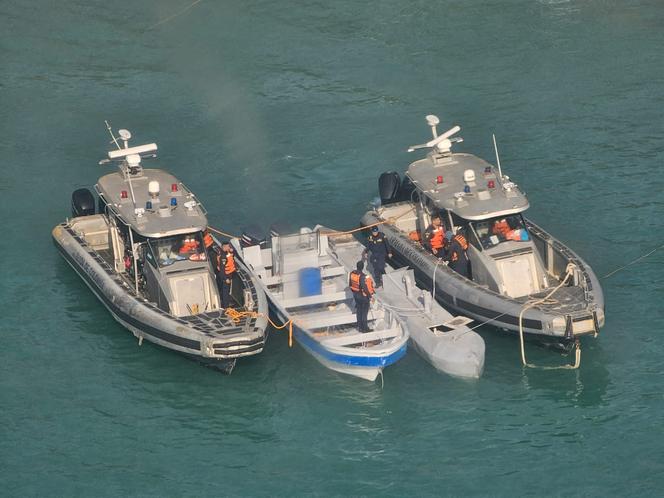


The Colombian navy on Wednesday, July 2, announced its first seizure of an unmanned narco-submarine equipped with a Starlink antenna off its Caribbean coast. The vessel was not carrying drugs, but the Colombian navy and Western security sources based in the region told Agence France-Presse (AFP) they believed it was a trial run by a cocaine trafficking cartel. "It was being tested and was empty," a naval spokeswoman confirmed to AFP.
Manned semi-submersibles built in clandestine jungle shipyards have been used for decades to ferry cocaine north from Colombia, the world's biggest cocaine producer, to Central America or Mexico. But in recent years, they have been sailing much further afield, crossing the Atlantic and Pacific oceans.
The latest find, announced by Admiral Juan Ricardo Rozo at a press conference, is the first reported discovery in South American waters of a drone narco-submarine. The navy said it was owned by the Gulf Clan, Colombia's largest drug trafficking group and had the capacity to transport 1.5 tonnes of cocaine. A video released by the navy showed a small grey vessel with a satellite antenna on the bow.
This is not the first time a Starlink antenna has been used at sea by suspected drug traffickers. In November, Indian police seized a giant consignment of meth worth $4.25 billion in a vessel steered remotely by Starlink near the remote Andaman and Nicobar islands. It was the first known discovery of a narco-submarine operated by Starlink.
Rozo said the use of autonomous subs reflected the traffickers "migration toward more sophisticated unmanned systems" which are hard to detect at sea, "difficult to track by radar and even allow criminal networks to operate with partial autonomy."
A near record number of the low-profile vessels were intercepted in the Atlantic and Pacific in 2024, according to the report. In November last year, five tonnes of Colombian cocaine were found on a semi-submersible en route to faraway Australia.
Cocaine production, seizures and use all hit record highs in 2023, the UN drug agency said last month. In Colombia, production has reached record levels, fueled by surging global demand. Colombian law punishes the use, construction, marketing, possession, and transportation of semi-submersibles with penalties of up to 14 years in prison.
